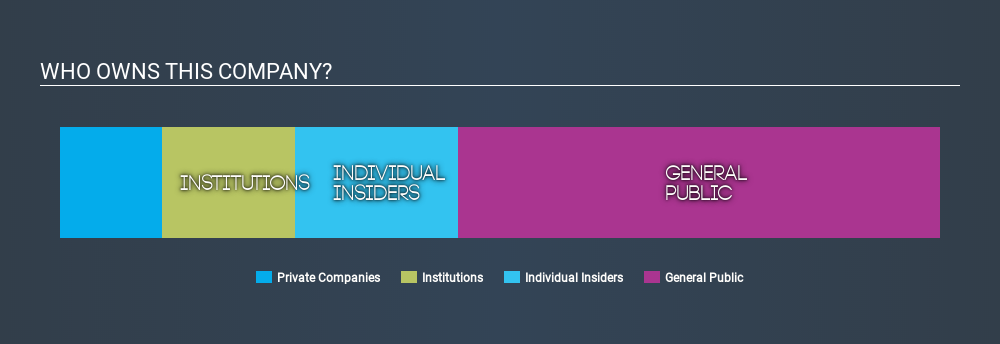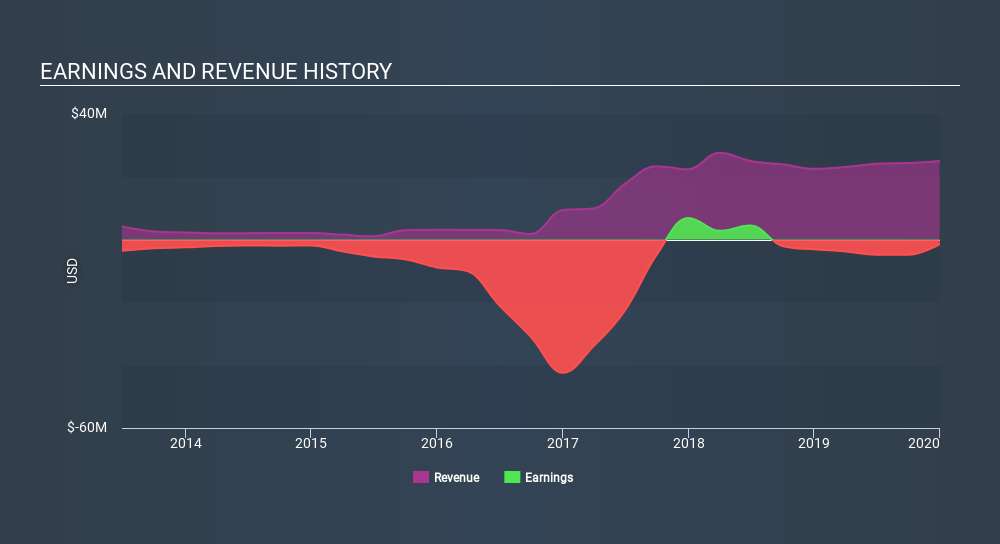- United States
- /
- Entertainment
- /
- NasdaqCM:DLPN
What Kind Of Shareholders Own Dolphin Entertainment, Inc. (NASDAQ:DLPN)?

If you want to know who really controls Dolphin Entertainment, Inc. (NASDAQ:DLPN), then you'll have to look at the makeup of its share registry. Institutions will often hold stock in bigger companies, and we expect to see insiders owning a noticeable percentage of the smaller ones. Warren Buffett said that he likes "a business with enduring competitive advantages that is run by able and owner-oriented people." So it's nice to see some insider ownership, because it may suggest that management is owner-oriented.
With a market capitalization of US$11m, Dolphin Entertainment is a small cap stock, so it might not be well known by many institutional investors. Our analysis of the ownership of the company, below, shows that institutions are noticeable on the share registry. Let's take a closer look to see what the different types of shareholder can tell us about Dolphin Entertainment.
See our latest analysis for Dolphin Entertainment

What Does The Institutional Ownership Tell Us About Dolphin Entertainment?
Institutional investors commonly compare their own returns to the returns of a commonly followed index. So they generally do consider buying larger companies that are included in the relevant benchmark index.
We can see that Dolphin Entertainment does have institutional investors; and they hold 15% of the stock. This implies the analysts working for those institutions have looked at the stock and they like it. But just like anyone else, they could be wrong. If multiple institutions change their view on a stock at the same time, you could see the share price drop fast. It's therefore worth looking at Dolphin Entertainment's earnings history, below. Of course, the future is what really matters.

Dolphin Entertainment is not owned by hedge funds. The company's CEO William O'Dowd is the largest shareholder with 8.7% of shares outstanding. With 8.5% and 6.2% of the shares outstanding respectively, Bard Associates Inc. and KCF Investments, LLC are the second and third largest shareholders.
A deeper look at our ownership data shows that the top 24 shareholders collectively hold less than 50% of the register, suggesting a large group of small holders where no one share holder has a majority.
While it makes sense to study institutional ownership data for a company, it also makes sense to study analyst sentiments to know which way the wind is blowing. There are a reasonable number of analysts covering the stock, so it might be useful to find out their aggregate view on the future.
Insider Ownership Of Dolphin Entertainment
The definition of an insider can differ slightly between different countries, but members of the board of directors always count. The company management answer to the board; and the latter should represent the interests of shareholders. Notably, sometimes top-level managers are on the board, themselves.
Insider ownership is positive when it signals leadership are thinking like the true owners of the company. However, high insider ownership can also give immense power to a small group within the company. This can be negative in some circumstances.
Our information suggests that insiders maintain a significant holding in Dolphin Entertainment, Inc.. It has a market capitalization of just US$11m, and insiders have US$2.0m worth of shares in their own names. It is great to see insiders so invested in the business. It might be worth checking if those insiders have been buying recently.
General Public Ownership
The general public -- mostly retail investors -- own 55% of Dolphin Entertainment. This size of ownership gives retail investors collective power. They can and probably do influence decisions on executive compensation, dividend policies and proposed business acquisitions.
Private Company Ownership
It seems that Private Companies own 12%, of the DLPN stock. It might be worth looking deeper into this. If related parties, such as insiders, have an interest in one of these private companies, that should be disclosed in the annual report. Private companies may also have a strategic interest in the company.
Next Steps:
While it is well worth considering the different groups that own a company, there are other factors that are even more important. Consider risks, for instance. Every company has them, and we've spotted 3 warning signs for Dolphin Entertainment you should know about.
If you are like me, you may want to think about whether this company will grow or shrink. Luckily, you can check this free report showing analyst forecasts for its future.
NB: Figures in this article are calculated using data from the last twelve months, which refer to the 12-month period ending on the last date of the month the financial statement is dated. This may not be consistent with full year annual report figures.
If you spot an error that warrants correction, please contact the editor at editorial-team@simplywallst.com. This article by Simply Wall St is general in nature. It does not constitute a recommendation to buy or sell any stock, and does not take account of your objectives, or your financial situation. Simply Wall St has no position in the stocks mentioned.
We aim to bring you long-term focused research analysis driven by fundamental data. Note that our analysis may not factor in the latest price-sensitive company announcements or qualitative material. Thank you for reading.
About NasdaqCM:DLPN
Dolphin Entertainment
Operates as an entertainment marketing and production company in the United States.
Reasonable growth potential and fair value.
Similar Companies
Market Insights
Community Narratives




